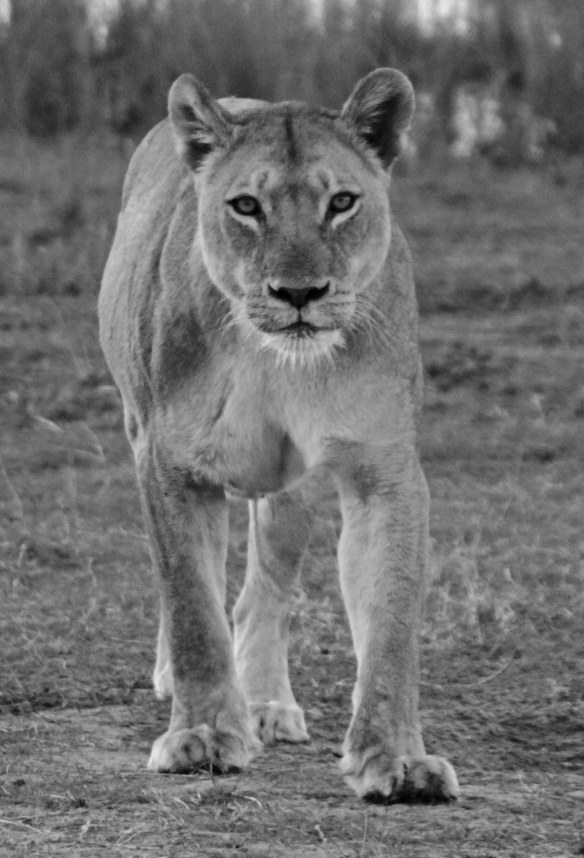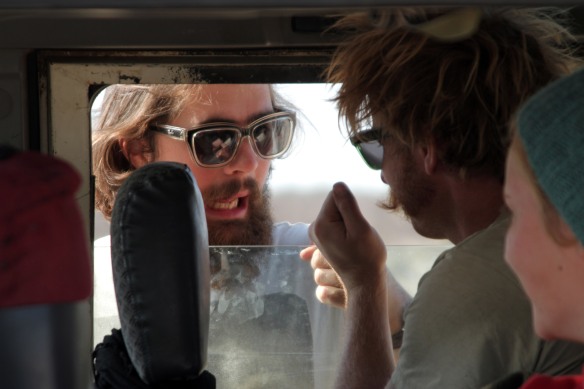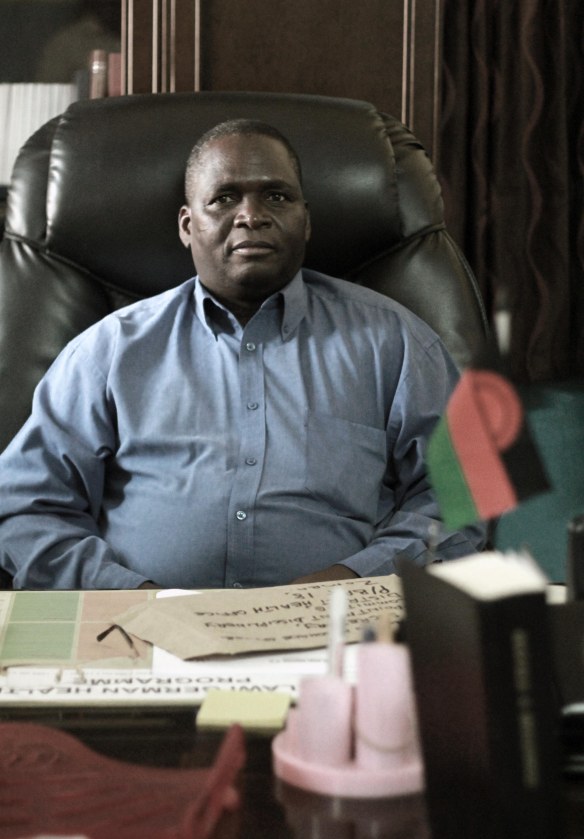Our route through Botswana was pleasingly obvious: we would enter via the north east border town of Kasane, traverse south west through the huge Chobe and Okovango National Parks, and then take a long straight road west through the Kalahari Desert and into Namibia. This path would take us through the wild north using off road tracks and safari trails, avoiding any major settlements. The roads would be awful and in some areas pretty remote, a good day’s drive from anyone. We would be missing the Botswana of punk metal and Ladies’ Detective Agencies, but this was just what we were looking for, a chance for some prolonged bush camping after the relative civilisation of Zimbabwe.
The Okovango is the biggest inland delta in the world. The majestic Kavango river is fed by the rains in Angola, taking six months to wend its way downstream to Botswana, where it is completely absorbed by a Kalahari that has not seen rain for months. The Okovango’s own rainy season combined with this paradoxical arrival of water in its dry season means that lush marshland of the delta is kept well hydrated all year round. When the rest of southern Africa is parched the Okovango delta is in flood, supporting a huge variety of wildlife without the need for migration.
This makes Botswana a premier safari destination, something which is very evident in parts of the north from the gleaming tour cars and exclusive game lodges. The creation of national parks is great news for wildlife, but has brought bad fortune on a number of the indigenous tribes, in particular the Gana and Gwi, collectively known as the San (‘Bushmen’). It’s not just national parks that displace these indigenous people however. There are lots of reports of cattle ranches and massive mining projects ejecting the San from their hunter-gathering existence, in particular in the Central Kalahari Game Reserve. Wherever the truth lies in these stories, with diamond deposits worth an estimated $3.3 billion and a massive tourism industry which is only expanding, the fate of the San is still very much up in the air. he tourism bubble had pushed prices far out of our range, and camping in the park’s official sites wasn’t an option. The solution lay in carefully timing our exits from the parks to take advantage of the fact that the gates are often miles inside the park boundaries. This meant that we could find secluded wild camps outside of the gates but without leaving the reserves. Sounds great on paper, but some intimate experiences with a selection of huge terrifying beasts made us a bit apprehensive. Driving through dense scrubland attempting to find our first such camp, we couldn’t help but take extra note of trees that had been ripped up by elephants, the huge feline tracks which freshly criss-crossed the sand, and fresh dung on the ground.
We had passed a ranger a kilometre back on the track who had joyfully informed us that there was a pride of nine lions on the road heading this way, and if we were lucky we might bump into them. We grimaced at him and continued off road, selecting a camp as the light failed. We could hear kudu and elephant nearby. It was pitch black now, darkness as only Africa can serve. A fire was our first and only priority – possibly one of the only times when I did not have food on my mind. It and the dubious sanctum of the car were our only defences. We cursed our feeble torches as we scuttled blindly around for firewood, the reflection of a light on the retina of a beast being the only way to reliably spot them in the dark; red for predator, green for prey. Fortunately the wood we found was dry as a boot, and a fine blaze was soon pushing back the black of the night with the distinctive blue flame of acacia hardwood. We set our blackened pots on the makeshift tripod of stones, a technique lifted from the Africans, and sat uncomfortably close to the heat, not wanting to turn our backs on the night. We chewed our curried kidney beans pensively, listening to the curious ‘whooo-oop’ of hyena, now close and then far. We knew from a semi-tame pack in Ethiopia just how heavy and menacing those intelligent beasts were. Despite repeated attempts to make other conversation, we couldn’t help but stray back to discussing just how reliable the information that animals are scared of fire really was. This and the following evenings were vivid, all our senses alive with drops of adrenaline; they displayed the distilled essence of the whole trip, are unforgettable in our minds.
During this period our lives were dictated by the sun, and we rose each day to rake over the fire for coffee and protection. The Milky Way, more known to us now than at any point in our lives before, would peer down blearily, brilliantly, before being rudely extinguished by a spreading crimson from the east. We would be driving by sunrise, camp broken, car serviced. Appearance was a forgotten farce, long hair askew and clothes torn. We felt as close as we could to being bushmen, for this trip at least. We revelled in it, perhaps in naivety – we could opt out of this way of life, we knew it was a temporary state. But for us in these moments it was pure and all consuming.
The wildlife was spectacular. Avoiding entrance fees as much as possible meant taking some unusual routes through the parks, tracks which led us through areas seldom frequented by visitors. Zebras and giraffes strolled around, majestic kudu and dainty impala making elegant retreats, and hippos snorted muddily from the river. Elephants were everywhere; 50,000 of them in this area of Botswana and north western Zimbabwe alone. Intimate experiences with leopard and lion left us breathless and full of wonder. It was a tiny glimpse of how African fauna must have been before population explosion and mass hunting, and it was wonderful.
At a town called Maun the tarmac began. It stretched west, seemingly endless, two golden highlights igniting in the inevitability of the burning sunset. Its perfection was a mockery of the 500km we had just fought to cross. We celebrated another successful offroad leg, and amused ourselves with the thought of being able to cover the last week’s distance in a day on this new road surface. We gave Tess a proverbial pat on the head, flipped down the sun visors, and set off towards the sun, stopping only to pick up some congratulatory cold beers.
The road to Namibia traverses the northern fields of the Kalahari desert. This is cattle land, dry scrub plains with huge farms claiming the entire landscape. There are endless fences, herds raising dust clouds which linger on the horizon. Cowboys canter along the side of the road, spurs and breeches in evidence, their horses oddly more at home in this terrain than any vehicle. It seemed as though the landscape was on loop for these 800 kilometres, the only variance being a subtle contour in the road. It was a time for reflection. Our trip was beginning to come to an end; flights booked, still unconvinced that we would actually make it, we had a lot to do before we left this mesmerising continent.



































